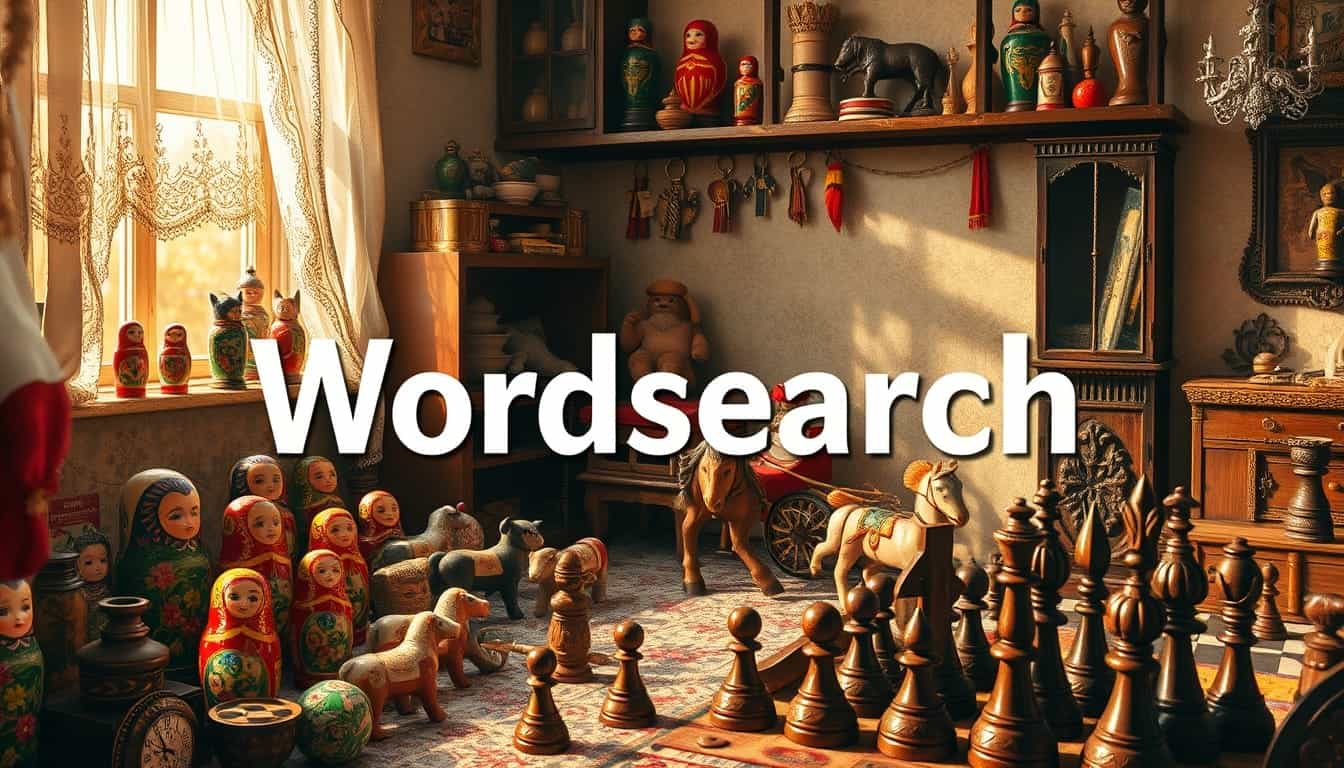Russian Toys and Games Word Meanings
| Russian Word | English Translation | English Phonetic |
|---|---|---|
| кукла | doll | kook-la |
| машина | car | ma-shee-na |
| кубики | cubes | koo-bee-kee |
| мячик | ball | myachik |
| пазлы | puzzles | paz-ly |
| колесо | wheel | ko-le-so |
| кубик | cube | koo-bik |
| носок | sock | no-sok |
| игрушка | toy | ee-groosh-ka |
| джекпот | jackpot | djek-pot |
| космос | space | kos-mos |
| бегемот | hippopotamus | be-ge-mot |
| робот | robot | ro-bot |
| бильярд | billiards | bil-yard |
| шахматы | chess | shakh-ma-ty |
| дартс | darts | darts |
| крокет | croquet | kro-ket |
| кегли | bowling pins | ke-gli |
| покер | poker | po-ker |
.

Russian Toys And Games Words and Their Fascinating Origins
The Russian language is rich with words that have intriguing histories and origins. Let’s explore a few of them:
1. Космос (Kosmos) – This word for “space” has ancient Greek roots, meaning “order” or “world.” It was popularized in Russian during the Soviet space race era.
2. Робот (Robot) – Surprisingly, this word isn’t of Russian origin. It was coined by Czech writer Karel Čapek in his 1920 play “R.U.R.” and quickly spread to other languages, including Russian.
3. Шахматы (Shakhmatу) – The Russian word for “chess” comes from the Persian “shah mat,” meaning “the king is dead,” which is also the origin of the term “checkmate.”
4. Бегемот (Begemot) – This word for “hippopotamus” comes from the Hebrew “behemoth,” a mythical beast mentioned in the Book of Job.
5. Кукла (Kukla) – The Russian word for “doll” has its roots in the Greek “koukla,” which itself likely originated from the Latin “cuculla,” meaning a hood or cowl.
6. Машина (Mashina) – This word for “machine” or “car” comes from the French “machine,” which in turn derives from the Latin “machina,” originally meaning a device or contrivance.
7. Джекпот (Dzhekpot) – This loanword, meaning “jackpot,” entered Russian from English in the 20th century, reflecting the globalization of gambling terminology.
8. Бильярд (Bil’yard) – The Russian word for “billiards” comes from the French “billard,” which originally referred to the cue used in the game.
These examples showcase how Russian, like many languages, has been influenced by various cultures and historical events, enriching its vocabulary with words from diverse origins.





